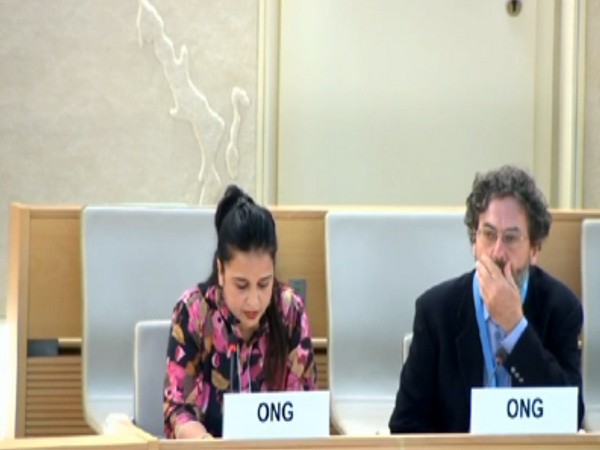Muslim Woman Backs India's Citizenship Amendment Act at UNHRC
At the 57th UNHRC session in Geneva, Faiza Rifat from Jaipur voiced support for India's CAA, highlighting its role in aiding persecuted religious minorities from Afghanistan, Bangladesh, and Pakistan, emphasizing its humanitarian and security benefits amid sustained debates.

- Country:
- Switzerland
In a crucial address at the 57th session of the United Nations Human Rights Council (UNHRC) in Geneva, Faiza Rifat, a Muslim woman from Jaipur, Rajasthan, expressed her support for India's Citizenship Amendment Act (CAA).
Rifat emphasized that the CAA aims to provide a pathway to citizenship for religious minorities from Afghanistan, Bangladesh, and Pakistan, stating that the Act benefits Hindus, Sikhs, Buddhists, Jains, Parsis, and Christians who entered India before December 31, 2014.
She noted that the CAA addresses the urgent need to offer refuge and legal status to individuals historically facing persecution in their home countries.
Rifat highlighted recent developments in Bangladesh, arguing that the CAA's implementation is vital as the Hindu minority in Bangladesh continues to face persecution and violence. She contended that the Act provides these individuals with a crucial option for migration to a safer environment, enabling them to live with dignity.
Additionally, Rifat explained that the CAA helps distinguish between genuine refugees fleeing persecution and illegal immigrants, ensuring that those with legitimate claims to asylum are granted citizenship while curbing illegal migration.
This differentiation, she argued, allows the Indian government to more effectively tackle illegal activities, such as drug trafficking, particularly in sensitive border regions.
Emphasizing the humanitarian aspect of the Act, Rifat described the CAA as a protective measure for vulnerable minorities, shielding them from exploitation and ensuring their safety within India's borders.
Despite the ongoing debate surrounding the CAA, Rifat stressed its role in safeguarding persecuted minorities and contributing to India's broader goals of security and social stability.
(With inputs from agencies.)
ALSO READ
Delhi Police Crackdown: 12 Bangladeshi Nationals Detained, Fake ID Racket Uncovered
Bangladesh's Interim Government to Announce 'Proclamation of July Uprising'
ISKCON Devotees Rally for Bangladesh's Hindus
March for Unity: Bangladesh's Defining Moment
Bangladesh's Interim Government Prepares Proclamation Amid Student Movement Demands










